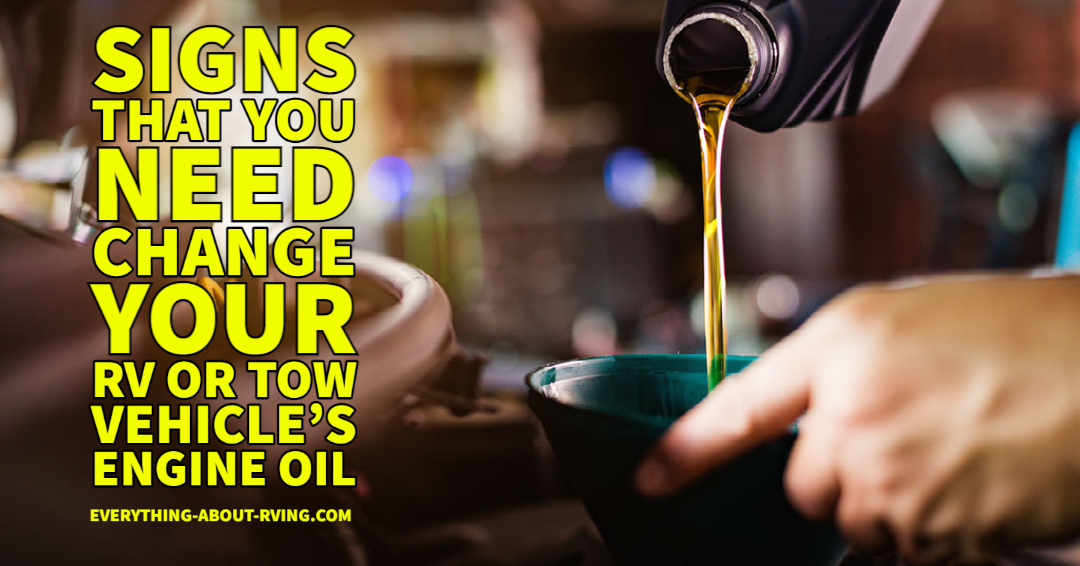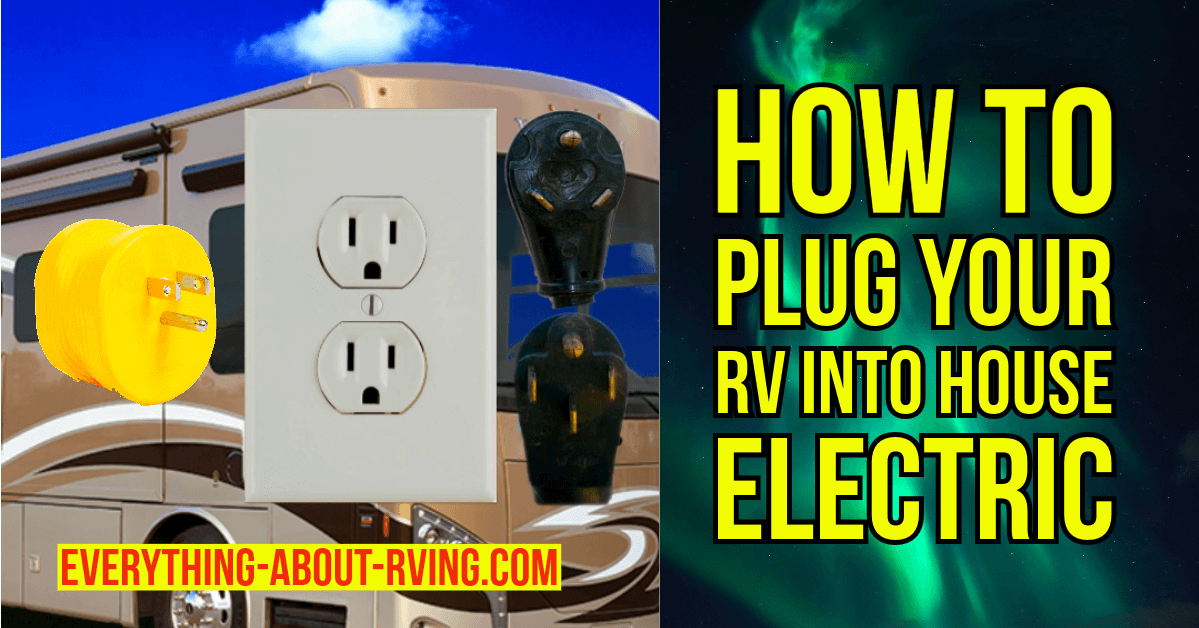- Home Page
- RVing Tips & Tricks
- Rv Engine Oil
Signs That You Need to Change your Tow Vehicle or RV Engine Oil
Oil is an engine's lifeblood, so you need to know the signs that alert you to change your RV engine oil
Oil is the engine's lifeblood that keeps your RV or tow vehicles moving. Oil extends the longevity of the vehicles and plays a key role in their overall performance. This is the main reason you need to change it regularly.
Changing the engine oil is a simple procedure that you can perform yourself or at any automotive center. Most motorists depend on mileage to determine the engine oil condition and when to change it. However, there are many signs that tell you when to change engine oil for your RV or tow vehicle to enjoy a smooth trip.
This article will equip you with some common signs that alert you to do oil service to keep your RV or tow vehicle in good shape.
Importance of Engine Oil
Engine oil has several important jobs, such as:
- It's a lubricant: Oil protects all the moving parts and prevents them from excess friction. Without it, metal and metal wear can cause severe damage to your engine.
- Cooling: The coolant system supplies the engine with the cooling it needs. In addition, oil offers supplementary cooling to all the engine parts that are out of reach of the coolant system.
- Cleaning the engine: It's responsible for removing all the debris, dirt, and other dangerous deposits in the system.
If you don't change the oil frequently, sludge and debris can build up in the engine, causing engine corrosion. Moreover, the oil will get dirty and old after a time. Dirty oil cannot lubricate the moving parts properly. The worst situation can lead to severe damage that you need to replace your engine. So, it is very important to do oil changes frequently and use the correct oil specified for your RV or tow vehicles to keep them in good shape.
7 Signs You Need to Change Engine Oil for Your RV or tow vehicle
Here are the seven signs you need to look out for to prevent serious engine problems because of late oil replacement:
Oil Change/ Check Engine Light Comes On
Your RV or tow vehicle will have a low oil light and check engine light to alert you if there is a problem with your engine or engine oil. If the oil light comes on, there are some issues with your RV or tow vehicle that you should address immediately. There are many reasons for this: low oil pressure, low oil level, or just a reminder that you need to change your oil as a maintenance schedule.
The engine light comes on when there is not enough oil in the engine, so you need to check if your RV or tow vehicle is running low on oil. In this case, you need to check the oil level and its condition to take the following action. If the oil is in good condition, you just need to add more engine oil. If the oil is old and dirty with a burning smell and black color, you need to change it right away.
Engine Noise and Knocking
When your engine is adequately lubricated, the oil coats most engine parts, creating a protective layer preventing excess friction that may cause damage. The liquid level becomes inadequate when a vehicle has traveled a long distance without changing oil. If the oil is not doing the lubrication job properly, you will start hearing engine noise.
While driving, your RV or tow vehicle may experience some knocking or thumping beneath the hood. The engine may seize up because of a lack of lubrication. The knocking and noise may also result from some engine blockage issues.
Low Oil Level with Dark and Dirty Oil
Clean oil is slightly translucent and amber. As the engine parts use the oil, it becomes darker, dirty, and filled with particles. If you notice abnormal noises in your RV or tow vehicle's engine, check the oil level and color to determine if it needs a change.
Once a month, pop the hood, use the dipstick, and check the oil level. If the oil film reaches the add indicator, add more oil to the tank. However, if the oil is dark and dirty, it's a clear sign you need to change the oil.
Ticking Sounds When Starting
Dirty oil with a lot of debris takes a long time to circulate in the engine. So, when you start your RV or tow vehicle, you may hear a ticking sound from the motor. The rhythmic sounds emitted from the top part of the RV or tow vehicles engine close to the valves occur because of the valve trains' lack of lubrication.
Most motorists consider the ticking sound a bad omen, and it's a sign that the engine lacks enough oil. It is advisable to stop driving until the ticking sound stops and add oil as the only remedy.
When a tightly sealed engine becomes loose, it's a sign that you need to change the oil promptly. Check for oil leakages and replace the damaged piston rings.
Burnt Oil Smell
When the oil level becomes extremely low or gets dirty and old, you may smell burnt oil while driving. Oil leakages may lead to a burnt oil smell. The loose engine valves cause the oil to accumulate around the hot engine components.
The oil leakages on hot engine parts may lead to overheating. This is a sign that you need to change your oil with fresh oil. You should schedule an oil change or do it yourself.
Poor Fuel Economy
We always rely on our RVs and tow vehicles to travel long distances while on vacation. However, long-distance driving puts extreme wear on the engine oil. Therefore, it is imperative to change the oil before a long trip.
However, if you realize the gas mileage is not constant as before, it shows that an oil change is overdue. Oil always gets old, thickens, and dirty, which increases fuel consumption.
Overheating
Overheating of the engine is caused by low oil levels and low coolant. The RV or tow vehicle's engine continues to heat even due to low oil pressure.
If you experience overheating, find a safe place to stop and allow your RV or tow vehicle to cool while checking the oil and coolant levels. If there is not enough oil in the engine, the components are not adequately lubricated. This will make the engine overheat. Therefore, you need to change the oil. If the situation happens when you are on the road, try to find a local gas station garage to help you fix the problem and avoid further damage.
Conclusion
Changing oil is one of the most important things to prevent your RV or tow vehicle from premature aging. Caring for your RV is not only keeping your RV or tow vehicle's engine functioning smoothly but also maintaining its value. And in the end, it is important to check your RV's or tow vehicles' oil levels.
Ensure that you service your vehicle regularly with the correct oil specification from the manufacturer. Address any signs of low oil levels such as overheating, poor fuel economy, ticking sounds when starting, burnt oil smell and engine noise, and knocking immediately.




